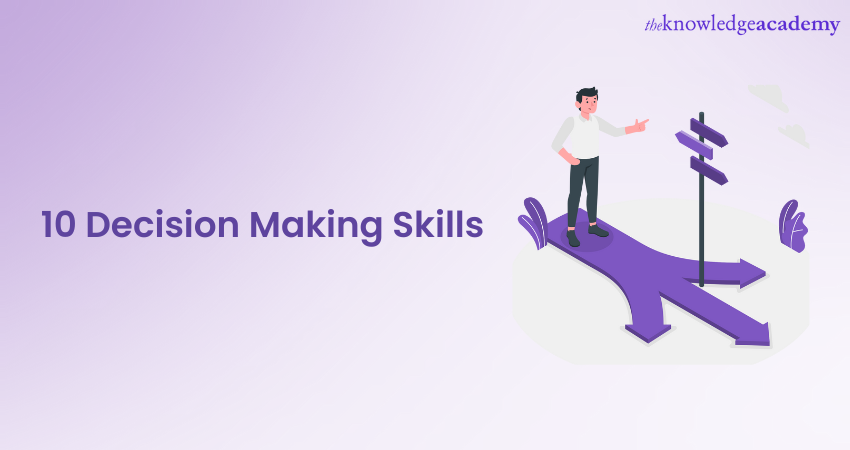Within the fast-paced realm of business, the ability to formulate sound choices is paramount. With numerous factors at play and constant pressure to deliver results, sharpening your decision-making skills can distinguish you from the competition. Mastering the art of strategic decision-making not just boosts personal effectiveness but also plays a significant role significantly to the overall achievement of an organization. From strategic decisions that influence the direction of a business to daily routine choices, the stakes are high, and the outcomes can have lasting repercussions.
This piece delves into effective techniques to enhance your decision-making skills , addressing everything from the psychology behind effective decisions to the importance of EI and awareness. You will gain insights into how to analyze options thoroughly, avoid decision fatigue, and embrace both gut feeling and data-driven insights. Whether you're a manager facing difficult calls or an individual seeking to make better choices under pressure, these strategies will enable you to maneuver through the challenges of decision-making with assurance and clarity.
Proven Strategies for Improved Making Decisions
To boost decision making skills, it is important to utilize practical techniques that promote clarification and assurance. One useful method is to create a decision-making structure. This involves outlining standards for alternatives and evaluating each one against these benchmarks. Using tools such as SWOT matrix or decision trees can organize thoughts and facilitate a systematic approach. This not only helps in mapping potential outcomes but also shifts focus from instinctive gut reactions to rational assessment.

Another valuable technique is to practice mindful awareness, which plays a key role in reducing rash decisions. By taking a moment to stop and think, individuals can distinguish their thoughts and reactions regarding the context at hand. Practicing mindfulness cultivates a greater awareness of biases and feelings, allowing one to separate from urgent stressors and reflect on implications more comprehensively. This time for thought often produces more considered choices that correlate with sustained goals.
Additionally, embracing team decision-making can significantly improve the value of outcomes. Engaging with others provides multiple viewpoints that can illuminate gaps in understanding and discover hidden options. Employing brainstorming sessions or group consensus techniques can aid in reaching outcomes more quickly and with more agreement. Sharing the decision making process not only improves the decision but also fosters a climate of collaboration and collective accountability.
The Role of Gut Feeling and Affect in Decisions
Intuition often acts as a guiding force in decision making, allowing individuals to draw upon their subconscious knowledge and experiences. This instinct can surface when a person is confronted with options, providing immediate insights that are not always accessible through logical reasoning. Many successful leaders credit their ability to make quick decisions to their reliance on gut feeling, which can be particularly valuable in stressful situations where time is limited.
Feelings play a significant role in shaping outcomes, influencing how we perceive situations and evaluate options. Positive emotions can enhance creativity and encourage risk-taking, while adverse feelings might lead to caution or despair. Understanding one's emotional state is crucial, as it can either cloud judgment or provide clarity. Recognizing how emotions impact decision making helps individuals navigate through complex options with a greater sense of awareness.
However, relying solely on gut feeling and affect can sometimes lead to poor choices if not balanced with critical thinking. It is important to find a balance where intuitive insights are supported by data and reasoned thought. By creating a framework that integrates both emotional insight and logical reasoning, individuals can enhance their decision process, leading to better and assured outcomes.
Methods to Tackle Decision Making Difficulties
One powerful strategy to overcome decision making obstacles is to formulate a clear framework for assessing options. Through developing a structured process that includes defining the problem, identifying alternatives, and evaluating the pros and cons, people can simplify complex decisions. This approach minimizes the mental burden and assists in understanding the consequences of each option, leading to more informed choices. Using decision tools, such as decision trees or SWOT evaluations, can boost clarity and promote a methodical approach.
An additional important tactic is to develop emotional intelligence, which empowers decision-makers to manage their feelings and biases during the decision-making process. Having aware of emotional influences can avoid impulsive decisions based on temporary feelings. Implementing mindfulness can reinforce this by building a higher awareness of one's thought processes and encouraging a calmer mindset. This understanding is vital when confronting high-pressure situations or when uncertainty looms, enabling a more considered and confident decision-making process.
Finally, seeking varied perspectives can dramatically enhance the effectiveness of decisions. Team-based decision-making promotes the sharing of insights and experiences, which can illuminate blind spots and present new angles to consider. Working with a mixed group can lead to more thorough evaluations and promote consensus, making the decision not only more solid but also more socially accepted. This team approach can significantly diminish the fear of making the wrong choice, as the assistance and advice from others offer a support system for personal decision-makers.
